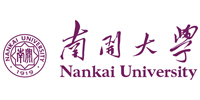
Faced with challenges on multiple fronts from environmental, social and economic issues, university leaders require vision and action
Introducing the theme of his keynote speech to the 2022 THE Leadership and Management Summit, Ke Gong, former president of the World Federation of Engineering Organizations, quoted Richard Levin, the former president of Yale University: “We expect good leaders to have a vision, and to state it clearly and frequently, and to take actions that advance towards its realisation.”
This could not be any truer than during a period of such transition, he added, with university leaders facing a paradigm shift brought on by factors such as the climate emergency, the pandemic and accelerating digitisation.
Gong has served as vice-president of Tsinghua University, and as president of Tianjin University and Nankai University, so has witnessed leadership in transition before. He shared his experience of a major transformation at Tsinghua, which became a comprehensive university at the turn of the century.
“At the time, we were the strongest university in technical disciplines, and there were faculty members who thought we should keep those strengths,” he said. “But our president thought our university strategy should be forward-looking, realising that humankind would face challenges such as climate change. Based on his vision, we allocated resources to life sciences and future-enabling technologies, and it is now a leading university in natural and social science.”
He picked out the words “vision” and “action” from Levin’s quote, adding that university leaders’ vision should now be turned towards sustainable development. “If we don’t take radical measures to reduce carbon emissions, we could fall into a path of irreversible, catastrophic extinction,” he said. “We need a blueprint for transforming our world into a peaceful, prosperous, inclusive and resilient world. Education leaders should have a clear vision and strategy to transform the system from one that is industrialisation-based to focused on sustainable development.”
When it comes to action, Gong continued, university leaders should follow the examples of Charles Eliot, who served as president of Harvard University for 40 years, and Nankai University’s founding president, who famously said “a Chinese university must know China and serve China”.
“The spirit of these two leaders is to think globally and act locally,” explained Gong. An example of this is Nankai’s new transdisciplinary centre, the Transdisciplinary Institute for Eco Civilisation Study, which brings together multiple faculties and specialisms. More than 45,000 attendees from 205 universities in China have taken part in a series of lectures at the institute, drawing more than 87,000 interactions online.
Considering the challenges ahead for higher education leaders in times of transformation, Gong felt that Levin’s quote could be adapted to say: “we expect our leaders to have a vision of transforming education in the context of sustainable development, and to state it clearly and frequently, and take actions with the university’s character that advance towards its realisation.”
“Leaders have to understand the transformation of education as a paradigm shift that requires a change in mindset, changes to curricula and pedagogies, and changes to the way we measure the performance of faculty and students. That needs strong leadership and good vision,” Gong concluded.








